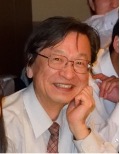Sulfated zirconia and titania supported V-W-O are well-known as catalysts of super solid acid and for NH3-SCR, respectively. Since the developments of these catalysts in the last three decades, extensive fundamental research has been conducted for understanding the origin of their catalysis. However, the understanding has not reached definite level mainly due to that these catalysts are supported form and poor uniformity around catalytical active sites. Meanwhile, we recently obtained a new crystalline zirconium sulfate Zr3SO9 by hydrothermal synthesis and found this material showed extremely high performance as super solid acid superior to the conventional supported catalyst. Similarly, we obtained a new crystalline W4V2TiO19 having a microporous structure which showed much low working-temperature performance than conventional supported catalysts. The most prominent point common for the two catalysts is that the crystalline catalysts showed activity as prepared, while the conventional ones always need high temperature calcination. Therefore, it can be said that catalytically active sites in these crystalline catalysts were synthetically generated but not prepared. In addition, crystalline catalysts may help us to better understanding of active sites because of their uniformity.
Biography

Dr Wataru Ueda is a specially appointed professor in the Faculty of Chemistry and Biochemistry at Kanagawa University and also an emeritus professor of Hokkaido University. He obtained a PhD from the Tokyo Institute of Technology(TIT) in 1981 and then started catalysis researches as a research associate at the Research Laboratories of Resources Utilization in TIT. In 1985-1987 he was a Ramsey memorial fellow at the Department of Physical Chemistry, Cambridge University and Royal Institution, UK, working with Prof. J. M. Thomas. In 2001, he promoted to professor of the Catalysis Research Center, Hokkaido University and from 2006 to 2010 he was the director of the center. In 2011 he served as the president of Catalysis Society of Japan and from 2012 to 2014 the president of Japanese Petroleum Institute. He has been contributing as a EAB member to UK catalysis Hub and as a Fachbeirat for Frits-Haber-Institute de Max-Planck-Gesellschaft Berlin. He is a leader of the research community of solid-state metal oxide catalysis and initiated various research projects. He directed the JST-CREST project named “Innovative Catalysts” for 9 years.
View a recording of the presentation below:




